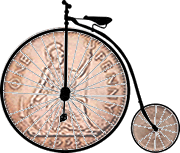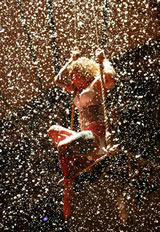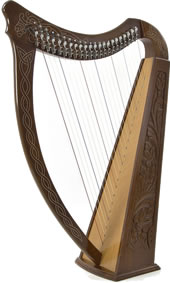
I discovered today the French term for a penny-farthing bicycle (pictured right) is le grand-bi. It is also known as a bicycle, and that was what they were usually called in English when they were popular in the 1880s. The name penny-farthing only came to be used in around 1891.
The penny-farthing, which is also known as a high wheel or high wheeler, was developed by James Starley in England and Eugene Meyer in France in about 1870. They were based on the French boneshaker or vélocipède, a term from Latin meaning “fast feet” and coined by Nicéphore Niépce in 1818. The large front wheel enabled higher speeds as with each turn of the pedals you could go further, however sudden stops would often send a rider flying over the handle bars, so penny-farthings lost out to safety bicycles, which were introduced in the 1890s, and were the ancestors of modern bicycles.
I think the French name is short for le grand bicycle, and the name penny-farthing comes from the fact that front wheel was a lot larger than the back one, like an old penny coin and a farthing (1/4 of a penny).
In Welsh such bicycles are known as beic peni-ffardding or ceffyl haearn (“iron horse”).
Do you have other names from them? Are or were such bikes used in your country? Have you ever ridden one?
I once rode a small, modern version of a penny-farthing at a bike show in Taipei. It was interesting, and I soon learnt that you have get off by stepping down to the rear as trying to dismount like on a normal bicycle doesn’t work and can leave you sprawling on the floor.
One of the guys at the circus on Wednesday night was riding a penny-farthing, which is why it came up in conversation.


